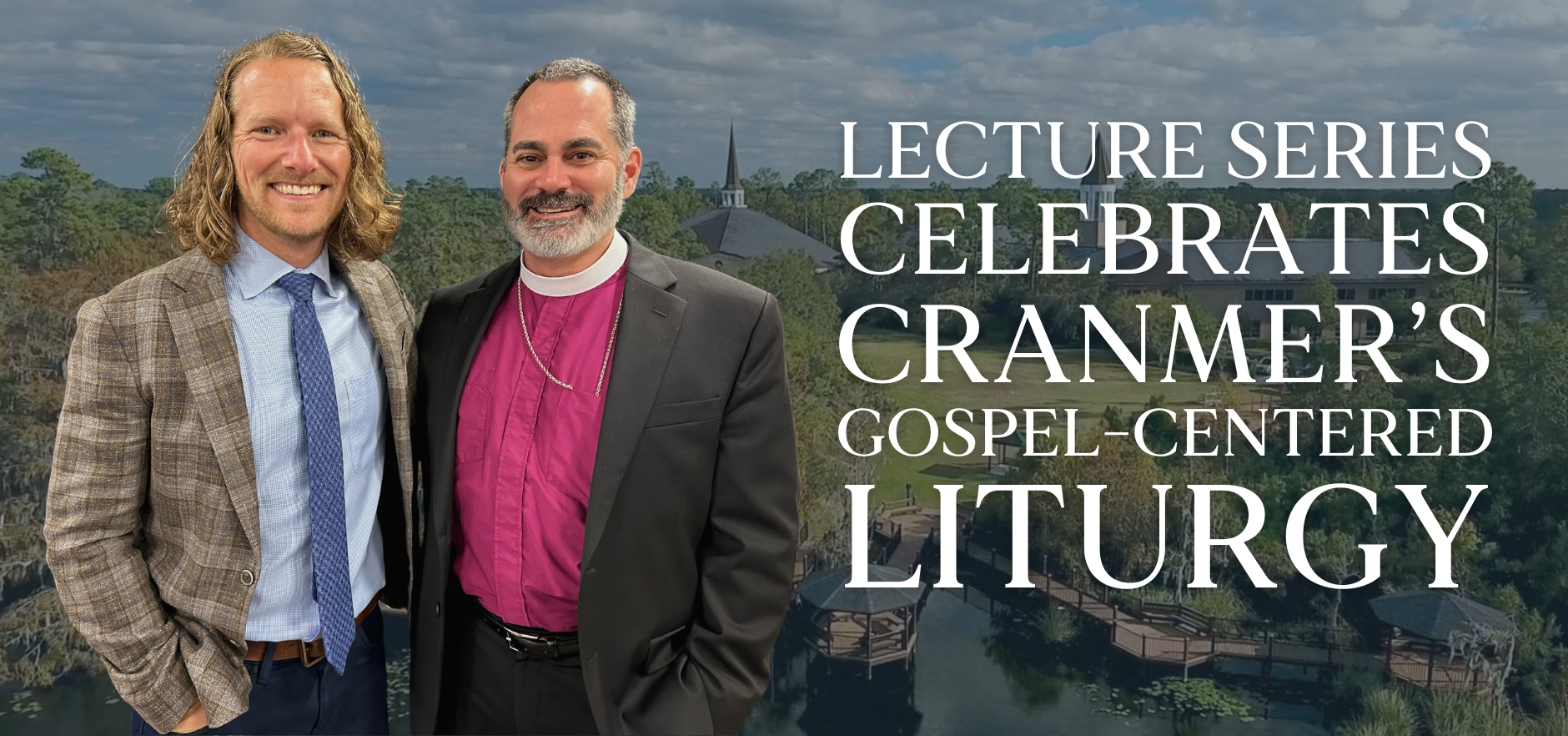On Feb. 8, 2024, Dr. Mike Allen, academic dean of Reformed Theological Seminary Orlando, Oviedo, welcomed those gathered to the third annual Cranmer Lecture, “Worship by Faith Alone,” presented by 2024 lecturer, the Rev. Dr. Zac Hicks. Click here to listen to Hicks’ lecture in its entirety, including a Q&A.
With clarity, Allen summarized the point and focus of the lecture series, setting the tone for the evening: “The Cranmer Lecture is a great opportunity for us to think about the past and how the past can be a helpful reference point for our faith, for our witness and for our worship,” he said. “Thomas Cranmer put pen to paper in compiling and crafting prayers and worship liturgies that continue to guide and point us in so many ways to God’s word and witness to the gospel.”
The lecture series, co-sponsored by the Diocese of Central Florida and RTS Orlando, is funded by a grant received from Lilly Endowment Inc. Previous lecturers include the Rev. Dr. Jonathan Linebaugh, whose topic was “Comfortable Words: Praying and Proclaiming the Gospel in the English Reformation“and the Rt. Rev. Dr. Justin S. Holcomb, then diocesan canon for vocations, whose topic was “Good Lord, Deliver Us: Trauma and Anglican Liturgy.” Click here to listen to Holcomb’s Cranmer Lecture.
“Our goal in these lectures is simply to look back with the help of experts thinking about the rich theological truths and biblical teaching that was at the heart of what happened in the English Reformation,” Allen said.
Hicks calls himself an “accidental academic.” For over two decades, he has served as a worship leader and pastor, but one driving question propelled him into an academic inquiry that was driven by and has ultimately informed his pastoral ministry: What is gospel-centered worship?
Hicks initially assumed he was alone in exploring what he thought was a new question, but he soon discovered he was not alone, nor was the query new. Cranmer, in a different context and with a different vocabulary, explored the same topic.
“Cranmer was asking and answering my question – ‘What is gospel-centered worship?’ – with far more resources of intellect, theology, patristics, language and pastoral experience than I ever could gain in a lifetime of ministry,” he said. “I would do better in my own ministry to study this man – his world, his liturgies, his scholarly inquiries, his psychology and relationships – in answering that question, and so that’s what I did for the next 10 years.”
That 10-year inquiry culminated in Hicks’ doctoral thesis and new book, “Worship by Faith Alone.” Throughout the lecture, he outlined the various microdecisions Cranmer patched together in the Book of Common Prayer. Those small decisions, Hicks said, contribute to the long-term formation of worshippers in an “intensely consistent percolation of total grace to wash over people week after week, month after month, year after year.” The landscape of worship today is vastly different than it was in Cranmer’s time, but what Cranmer provided was a “timeless, transcultural gospel grammar.”
Plans for the fourth annual Cranmer Lecture are being finalized and will be announced when available.

